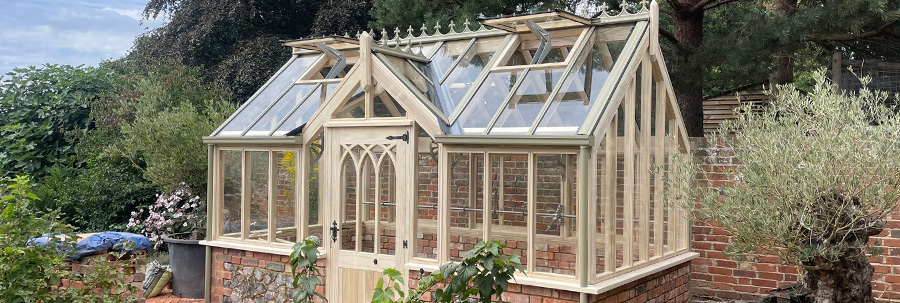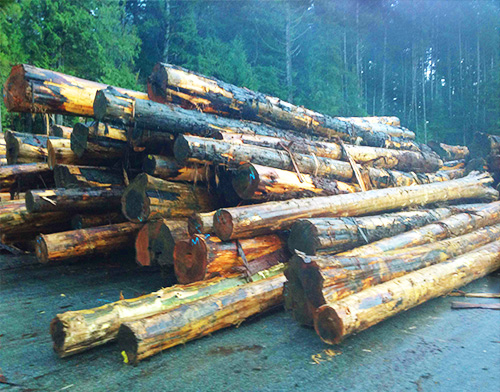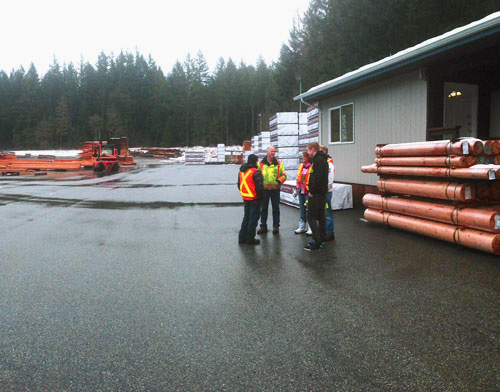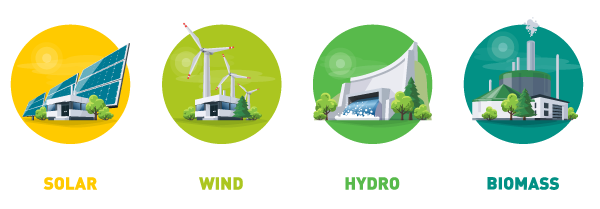Social and Environmental Commitments
Sustainability
Part of our framework to work beyond the sustainability commitments assured by our timber certification scheme is to seek alternative timbers or processes that we can consider to have a better sustainability impact than what we can achieve with Western Red Cedar. Western Red Cedar is the material we started manufacturing greenhouses since 1993 and still presents itself as a sustainable and durable timber fit for the job. Although Cedar boasts unrivalled aesthetics and beauty, we continue to research and introduce new materials that we think will have less of an environmental impact. By providing a range of Cedar, Accoya and Hemlock Thermowood options we can provide our customers the choice of timber that suits their needs, budget and sustainability expectations. By the act of diversification of timber species itself, we can spread our needs between supply chains to reduce impact and over consumption. Furthermore, we have no sole dependency on a species and retain the option to withdraw from using any timber that falls below our evolving criteria as we progress through our future towards better sustainability.
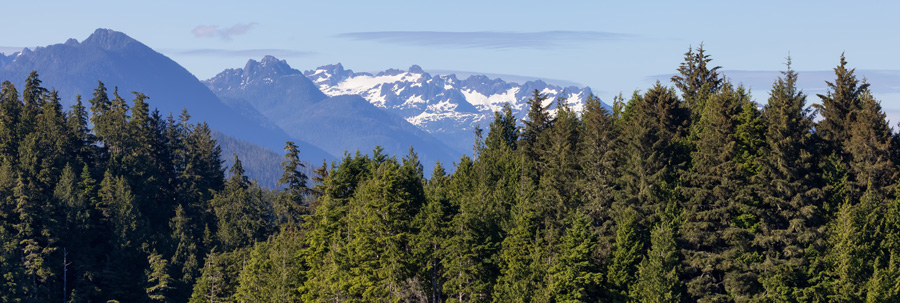
Cedar
Western Red Cedar timber is the ultimate natural, renewable and strong material for Joinery, and the global demand will only grow. Western Red Cedar’s value to humanity and benefit in a sustainable woodworking industry can only have value if we purchase and import our Cedar timbers in ways that generate economic growth, create social benefits and minimize the impact on the environment. All of our timber products are purchased with a PEFC chain of custody. Where possible we strive to purchase 100% PEFC material. For more information on our PEFC chain of custody certificate please follow this link.
Accoya
Over the last five years, we have introduced Accoya timber as our primary alternative to cedar in our range of greenhouses. Accoya timber is a more expensive timber than Cedar to acquire, but comes with many benefits over Cedar. The most striking feature is the 50-year above-ground rot guarantee provided by the manufacturer Accsys. With this assurance and the long lifetime of the toughened glass we use our Accoya greenhouse’s most sustainable attribute is the prolonged product lifetime which will reduce consumption, reduce indirect energy use from production and reduce emissions from transport.
Accoya is created from sustainably sourced softwood which is modified using the acetylation process, which enables it to resist rot and endure the elements. The softwood used for Accoya is grown from fast-growing trees, which is a huge benefit for sustainability over slower-growing trees. These fast-growing trees absorb carbon quicker and also provide replacement log stock from existing already processed forests which means remaining virgin forestland can be left untouched. Follow this link for more information about the sustainability of Accoya
The performance of Accoya is unprecedented for reliability for timber; it is manufactured and tested not to visibly swell, shrink or distort. Highly durable and stable, Accoya excels in any climate in tough applications. This makes for another prolonged product lifetime benefit in a way that painted finishes last exceptionally long on accoya timber. The increased stability means we can also use water-based paint products on Accoya which are still time enduring but have nuch less environmental impact than of solvent-based paints.
Accoya Heritage Greenhouse
Hemlock Thermowood
Hemlock Thermowood is fine grain, high-end timber with minimal knots and benefits from a very tough surface finish. The Scandinavian Thermowood process preserves this product to give excellent durability whilst maintaining an attractive appearance.
Introducing Hemlock into our timber option range is an important component to reduce the strain we put on obtaining Cedar timber and Canadian forestry. Hemlock grows in harmony with Cedar trees in British Columbian forests. Typically hemlock trees are fell in the process of obtaining cedar trees but are disregarded due to their low market value. More forest area is eventually felled to ensure logging companies cover their costs of laying infrastructure. The thermowood process means the Hemlock becomes a valuable durable timber. This thus reduces the focus and dependency for the logging companies on Cedar and reduces deforestation.
As extractives and resins are removed in the thermowood process, the durability of painted surfaces is greatly improved. With no extractives in the wood to bleed through the finishes, there is less flaking and peeling and so this reduces the maintenance needs of the wood or painted finish. We give our Hemlock Thermowood a 10 year structural guarantee against rot (the same as our cedar buildings)
Environmental Management
Our company has a Business environmental policy, which you can view here. Our environmental policy covers the use of business consumables, energy and water, transport and supporting a green culture. We strive to reduce our impact on the environment at every business opportunity and place this commitment.
Vehicles
As we update our vehicle fleet we aim to replace our vehicles with ever more efficient vehicles which offer reductions in carbon emissions and other pollutants. At the moment electrics vehicles do not offer suitable alternative for our greenhouse deliveres.
Waste Materials
We recycle our waste products.
 |
Timber | Our waste timber shavings are collected and reused for animal bedding. |
 |
Glass | Glass is collected and sent back to our suppliers to be melted back to input stock and processed into new glass. |
 |
Plastics | We seperate our Hard and soft plastics from gernal waste which are collected and recycled by our waste management partner |
 |
Metals | We seperate our ferrous and non ferrous metal from gernal waste which are collected and recycled by our waste management partner |
In the near future we plan to expand our recyling program to include rubber and insulation waste.
Powering our workshop
We are commitmented to power out manufacturing workshop sustainability through responsible sourcing and purchasing of renewable energy. The energy provider to our workshop supply’s mostly renewable source electricity sourced from independent generators across the UK and Europe. This can be through a mix of souces including wind, soloar, hydro and anaerobic digestion generators.
Labour Standards and Human Rights
At Woodpecker Joinery our intention is to be a company who strives to maintain high employment welfare standards both internally towards our employees and to also reflect our expectations upon our domestic and international suppliers. To ensure we have a clear benchmark of our expectations we subscribe to the Ethical Trading Initiative (ETI) base code. More details can be found at the following link. These base codes are an internationally recognized set of labor standards based on the ILO conventions.
To support our welfare standards internally amongst other policies, we exercise Equal Opportunities and Diversity Policy and an Anti Bullying policy – both available on request. Our top priority is to make sure our employees go home safely to enjoy their families and maintain good occupational health. All aspects of health and safety are highlighted through our Health and Safety policy with the intention of developing a culture where every employee takes responsibility, and preventing harm by actively influencing others through training, communication and using best practices.
Working with the community
Donations
To improve horticulture in the community we have made donations to charity including a shed building to Horticap to aid volunteers and adults with learning difficulties to continue a program of propagating, cultivating and maintaining quality plants in North Yorkshire. Another charitable donation was made to Fox Hollies School, Birmingham we donated a greenhouse to encourage school children to engage with horticulture. At the Hampton Court flower show 2012 we installed and provided a greenhouse to be used as a butterfly house in a silver medal-winning garden designed to “highlight the decline of Butterflies Worldwide and educate and encourage others to do their bit of UK Butterfly Conservation.” We prepared and temporarily installed a greenhouse installation for Victoria Brown art installation at Tatton Park flower show to enhance the artists “Flowers Fairies & Sprites Project” designed to engage with young children at the Tatton Park show and encourage youngers to grow in the garden. Recently we also installed wooden garden accessories in a local school – St Joseph’s Catholic Primary School at a heavily discounted value to help furnish the remembrance garden.
In 2018 we supplied the North East Horticultural Society with 10 Tall Coldframes which were donated to local schools to promote growing and horticulture to youngsters.
In 2022 we started working with the Pinces Foundation to support their Horticultural and Crafts programs by supplying greenhouses to enable better resources for education courses and programs delivered by the Foundation. You can find out more about are work with the Prices Foundation at the following link
Skills and Education
In relation to skills development, we have run an NVQ apprenticeship scheme since 2005. Our apprenticeship offers a place to vocationally study bench joinery and we have developed and supported over 14 students in the last 12 years. We currently have three apprentices enrolled and look to employ another two students to begin in the 2017 academic year. As to develop mature members of staff, one employee recently completed City and Guilds Electrotechnical craft qualifications funded by the company. Safety has also improved by funding an employee to participate in a manual handling course aim to train an individual to deliver manual handling training, and now facilitates an in-house manual handling program and so improve workplace understanding of manual handling risks and practices.
We are currently fully funding an over 21-year-old mature employee to complete his NVQ bench joinery qualification. We are also advertising to recruit an apprentice to join our office team and study for a business administration qualification. We run a quarterly appraisal scheme to identify training needs, set employee development goals and identify any concerns or personal struggles they are facing.

